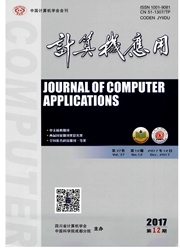

 中文摘要:
中文摘要:
为降低信任评估固有时滞性对信度结果可靠性的负面影响,以二阶导数为数学工具,通过量化目标实体的信度变化态势并将其纳入到信任评估过程,提出了用于增强信任评估可靠性的时滞性弱化策略。为检验该策略的有效性,基于逆向工程的思想使用它扩展了由Sfivatsa提出的著名的信任重估模型。实验结果显示,扩展后的新模型较原有模型在部分评估结果上更逼近于目标实体的真实行为,同时也更能抑制恶意实体的策略波动行为。这表明时滞性弱化策略能够用于增强信任评估的可靠性。
 英文摘要:
英文摘要:
To reduce the negative impact of the inherent time lag property of trust evaluation on the result of evaluation, new time lag weakening policies for enhancing trust evaluation reliability were proposed by integrating the trust trends of target entity into trust evaluation process with second derivative as the measurement tool. In order to check the effectiveness of this strategy, with the idea of reverse engineering, the authors used it to extend the famous trust revaluation model proposed by Srivatsa. The results show the parts of trust evaluation result with the extended model is closer to the real behavior of the target entity than that of the original model, and the former is more capable of inhibiting the fluctuating behavior of malicious entity. All of these indicate that the time lag weakening policies can be used to enhance the reliability of trust evaluation.
 同期刊论文项目
同期刊论文项目
 同项目期刊论文
同项目期刊论文
 期刊信息
期刊信息
